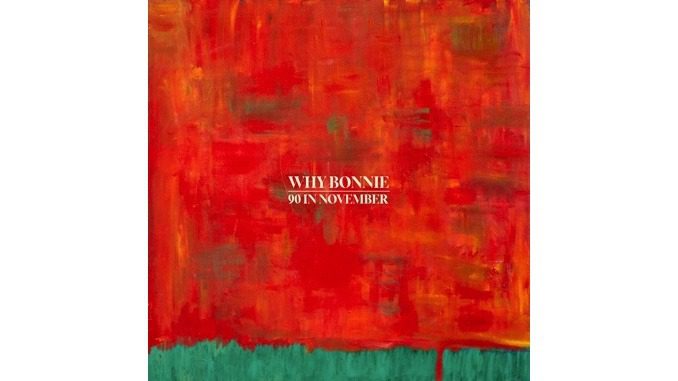Though they’ve been rehearsing for this moment for some time, releasing EPs that skew towards indie pop since 2018, Why Bonnie appear fully formed on their debut album 90 in November. Out via Austin-based Keeled Scales, their warm, twangy brand of indie rock feels right at home with that of their label-mates Sun June, Good Looks and Katy Kirby. The label’s recent, glorious run has seen them uplifting a unique rock scene that captures the simultaneously grounded, yet majestic nature of their home state—90 in November is just the latest entry.
Why Bonnie’s named influences are acts like Sheryl Crow, The Replacements and Townes Van Zandt. With inspiration taken from all sides of rock music, it’s easy to see how they seamlessly straddle the lines between several genres themselves. They make indie rock, sure, but there’s an undeniable current of country music in there, as well as some nods to pop songwriting in their hooky, melodic execution. These disparate influences also bolster their music with a sense of familiarity.
This is music that’s made to spill out from car speakers when it’s so hot out that the summer sun burns your thighs through the windows like ants under a magnifying glass. It’s fitting, then, that cars play such a prominent role in the record. The back-to-back stunners “Nowhere LA” and “Hot Car” set us immediately “in a broken-down car” and “in the back seat,” respectively, and take us through rich narratives woven throughout these bright, twangy rock songs. The first of these, “Nowhere LA” is a soaring country-rock track that intersperses a roadside repair with musings on a failed relationship. “Thought of what I’d say to you / But my words all came up empty,” sings Blair Howerton, stalled and resigned, rehearsing but coming up short. “Hot Car” is more hazy, moving through its verses with a visceral slowness as Howerton sings lines gesturing vaguely at nature’s wrath with a distant, contemplative tone: “Smells like summer in the Carolina rain / Dripping wet in the scorched grass.”
There are similar nods to Texas’ weather in two of the record’s finest tracks, “Galveston” and the title track, “90 In November.” The former, an immediately memorable, clear-eyed indie rock song, finds Howerton telling stories of visiting the titular Gulf Coast city over the years. Evocative songwriting is a strength of the record, especially here, with an opening graph that sets the scene perfectly: “Candyland beaches / Water too salty to swim / Passed all of the dance halls and dive-ins / Looks just the same as it did back then / But we lost the pier to hurricane season.” “Galveston” is a clear-eyed rock song, maintaining a calm demeanor even as its guitars swell with distortion. It’s just as captivating when it’s collecting itself as when it’s ramping up. In the same vein, the album’s title track showcases how good Why Bonnie are at making songs that, while varied in tempo, feel cohesive. From lackadaisical verses to its sweltering, jagged chorus, “90 In November” is a song to get lost in. Howerton sings of frying electrical grids, construction, the “technicolor” sun, roadside billboards—the various harbingers of a brutal summer. Through fits and starts of distorted guitar and distant piano keys, the song kicks into gear, delivering a grooving guitar riff that feels like frustration lifting, leaving you in a long exhale.
With an opening riff that recalls the murky, Southern rock of Wednesday’s “Cody’s Only,” the spectacular “Lot’s Wife” is a clear highlight of the album’s back half. Exploring the biblical tale of the woman whom God turned into a pillar of salt as punishment for looking back at Sodom, the song uses the ancient narrative as commentary on trying to capture a memory, rather than live in it. It’s a harsh way to tell yourself to live in the moment more, but an effective one. The band gets the chance to shred through the intricate arrangement, and frankly, they sound like they’re having the time of their lives. It’s that dynamic that makes so much joy run through 90 in November. These are musicians totally in command of their sound, devoted to every specific artist and genre that influenced it, but there remains enough levity that it never gets bogged down by perfectionism—sometimes just caring is enough.
Eric Bennett is a music critic with bylines at Post-Trash, The Grey Estates and The Alternative. They are also a co-host of Endless Scroll, a weekly podcast covering the intersection of music and internet culture. You can follow them on Twitter at @violet_by_hole.




